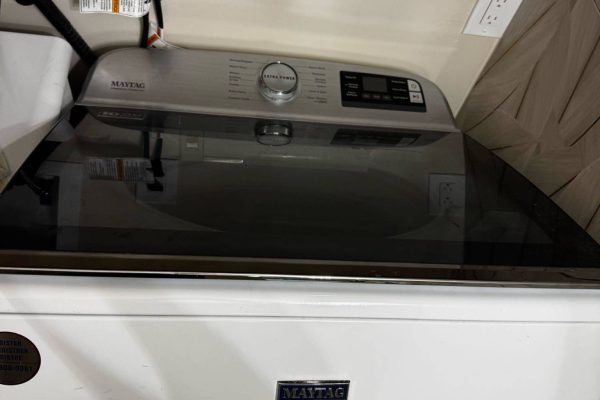Dishwashers are a convenient and time-saving appliance in modern households, but they can also be significant consumers of energy and water. With rising awareness of environmental sustainability and the desire to reduce utility costs, many homeowners are seeking ways to make their dishwashers more energy-efficient. In this article, we’ll explore practical tips and strategies for reducing energy and water consumption while maximizing the efficiency of your dishwasher, helping you save money and minimize your environmental footprint.
Load the Dishwasher Efficiently
Proper loading is key to maximizing the efficiency of your dishwasher. Avoid overcrowding the dishwasher, as this can obstruct water flow and hinder cleaning performance. However, aim to fill the dishwasher to capacity to minimize the number of cycles needed. Arrange dishes strategically, placing larger items like pots and pans on the bottom rack and smaller items like cups and bowls on the top rack. This ensures even distribution of water and detergent, leading to more efficient cleaning results.
Scrape, Don’t Rinse
Contrary to popular belief, pre-rinsing dishes before loading them into the dishwasher is unnecessary and wasteful. Most modern dishwashers are equipped with powerful spray jets and sensors that can effectively remove food residues during the wash cycle. Instead of rinsing dishes under running water, simply scrape off excess food scraps into the trash or compost bin before loading them into the dishwasher. This not only conserves water but also saves time and energy.
Use Energy-Efficient Settings
Many dishwashers offer a variety of wash cycle options, including eco-friendly or energy-saving settings designed to reduce energy and water consumption. These settings typically use lower water temperatures and shorter wash cycles to achieve cleaning results while minimizing resource usage. When possible, select these energy-efficient settings to optimize your dishwasher’s performance and reduce environmental impact. Additionally, consider using delay start features to run the dishwasher during off-peak hours when energy demand and utility rates are lower.
Choose Eco-Friendly Detergents
The choice of detergent can also impact the energy and water efficiency of your dishwasher. Opt for eco-friendly detergents that are formulated to be biodegradable and free of phosphates and other harmful chemicals. These detergents are gentler on the environment and often require lower water temperatures to dissolve and activate, further reducing energy consumption. Look for detergents with the ENERGY STAR label, indicating that they meet stringent criteria for efficiency and environmental performance.
Maintain the Dishwasher Regularly
Proper maintenance is essential for ensuring the long-term efficiency and performance of your dishwasher. Regularly clean the filter and spray arms to remove any buildup of food debris or mineral deposits that can impair water flow and cleaning effectiveness. Check the door seal for signs of wear or damage and replace it if necessary to prevent leaks and conserve energy. Additionally, inspect the dishwasher’s inlet valve and hoses for leaks or blockages and address any issues promptly to prevent water waste.
Air Dry Instead of Heat Dry
Many dishwashers offer the option to air dry dishes instead of using a heat dry cycle. Air drying is a more energy-efficient method of drying dishes, as it relies on natural airflow rather than heating elements to evaporate moisture. After the wash cycle is complete, simply open the dishwasher door slightly to allow air to circulate and dry the dishes naturally. This not only saves energy but also helps preserve the longevity of plastic items and reduces the risk of heat-related damage to dishes.
Consider Investing in a Newer Model
If your dishwasher is outdated or inefficient, consider upgrading to a newer model that is ENERGY STAR certified. ENERGY STAR dishwashers are designed to meet strict energy efficiency criteria set by the Environmental Protection Agency (EPA), consuming significantly less energy and water than conventional models. These dishwashers feature advanced technologies such as soil sensors, variable spray patterns, and improved insulation to optimize performance while minimizing resource usage. Although the initial investment may be higher, the long-term savings in energy and water bills make it a worthwhile investment for environmentally conscious homeowners.
By implementing these tips and strategies, you can maximize the efficiency of your dishwasher while reducing energy and water consumption. From proper loading techniques to choosing eco-friendly detergents and maintaining the dishwasher regularly, small changes can make a big difference in both your utility bills and environmental impact. By adopting energy-efficient practices, you can enjoy the convenience of a dishwasher while minimizing your carbon footprint and contributing to a more sustainable future.
We have appliance repair experts available today! Call a professional Poway Appliance Repair Service Center technician by phone or book your service.
Our service center is open 24/7, so you can easily schedule a convenient repair time. The specialist will arrive at the agreed time, carry out a diagnosis, and, if necessary, offer repairs. If you are willing, your appliance will be repaired directly on-site within 1-2 hours. We provide top-notch service at an affordable price!
Contact us


